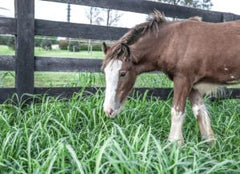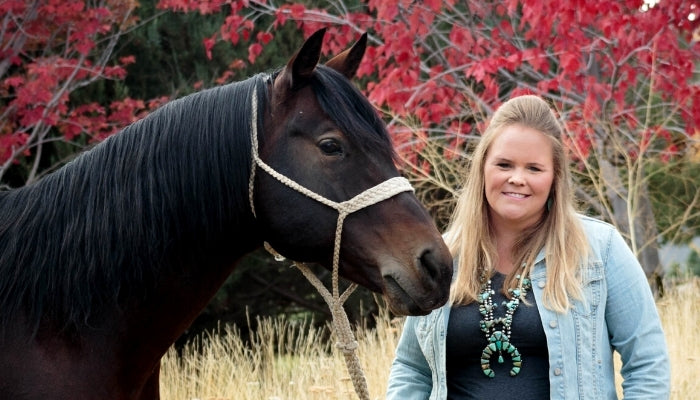
Selenium
is a naturally-occurring essential mineral found in certain foods and is required by an innumerable number of organisms, including horses and humans. To date, certain key health benefits have been attributed to selenium, and they include:
- * Its function as a natural antioxidant
- * Its role in resistance to viral infections
- * Its role in aiding reproductive system functions
- * Its ability to protect the integrity of muscle tissues
- *Its involvement in immune system response
As selenium relates to horses, however, Dr. Kelsey J. Nonella, Ph.D., P.A.S., through funding provided by Horse Guard Inc., conducted an extensive amount of research on selenium needs in horses at West Texas A&M. She is considered one of the world's foremost experts on selenium nutrition in horses and one particular area of study she focused on was organically-sourced selenium versus inorganically-sourced selenium when supplementing a horse's diet. Organic selenium is the form of selenium that your horse would naturally consume in varying amounts in forages and concentrates as compared to the inorganic form which is a by-product of copper mining.

Why organic selenium?
There are a number of reasons for this, the most poignant being organic selenium, known as selenomethionine (Se-met), being readily absorbed, processed, and stored in the horse's muscle tissue... As has been the case for countless millennia prior. Selenium intake of this composition would replicate that of grass and hay from areas with selenium-rich soil and would pose no harm to the horse as steady-state levels of selenium would eventually build and maintain itself within the creature over time.
Why not inorganic selenium?
On the other hand, inorganic selenium, known as selenate or selenite, is not easily absorbed, processed, and utilized by the horse; often it is excreted rapidly as a result, a commonality shared with other inorganic compounds. Of greater concern is the potential for toxic levels of selenium buildup occurring. Chronic (long-term) selenium toxicity can present itself through lameness, hoof malformation, hair loss, emaciation, or liver damage. It is, however, cheap and inexpensive to produce and is found in many commercial feed products and supplements as a result. Good for business, bad for your horse.






Leave a comment (all fields required)